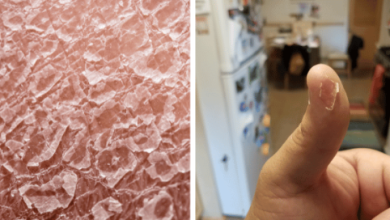Early Puberty: Causes, Dangers and Prevention (Science Based)
Human biology evolves slowly—but in recent decades, one trend has rapidly changed: children, particularly girls, are entering puberty earlier than ever. The average age of first menstruation (menarche) has dropped from around 16 in the 1800s to just 12 today, with signs of puberty sometimes starting as early as age 7.
This shift is more than just a medical curiosity—it’s a growing health concern.
Early Puberty: Why It Matters
While early puberty may seem harmless, research links it to an increased risk of:
- Hormonal imbalances and metabolic issues like type 2 diabetes
- Cardiovascular conditions, including hypertension and obesity
- Mental health struggles such as anxiety and depression
- Higher susceptibility to certain cancers
These risks highlight the importance of understanding what’s behind early puberty—and what parents can do to help.
What’s Driving Early Puberty?
A variety of modern lifestyle and environmental factors may be contributing to this trend:
1. Childhood Obesity
Obesity can disrupt hormonal balance by increasing levels of insulin, leptin, and other compounds that regulate puberty. Sedentary lifestyles and poor diets not only contribute to weight gain but also accelerate physical development.
2. Stress and Mental Health
Emotional stress from family conflict, school pressure, or bullying may trigger hormonal changes that initiate puberty earlier. This creates a feedback loop, as early puberty can also lead to increased stress.
3. Chemical Exposure
Certain endocrine-disrupting chemicals (EDCs)—found in plastics, personal care products, and even food packaging—can mimic estrogen in the body. Substances like BPA, phthalates, and flame retardants have all been linked to early onset puberty.
4. Diet and Animal Hormones
High consumption of animal products, especially those from hormone-treated livestock, may affect children’s hormonal systems. Diets low in vegetables and high in processed or animal-based foods have also been associated with early puberty.
5. Low Vitamin D
Children with low levels of vitamin D may be more likely to experience early puberty. Vitamin D helps regulate several body systems, including those involved in reproductive development.
How Parents Can Help Delay Early Puberty
Although some factors are beyond control, there are proactive steps families can take to support healthy development:
✅ Promote a Balanced Diet
- Offer more fruits and vegetables, especially organic options
- Reduce processed foods and hormone-treated meats
- Choose dairy alternatives like almond or oat milk when possible
✅ Encourage Daily Activity
- Aim for at least 60 minutes of physical activity each day
- Limit screen time and promote outdoor play
✅ Reduce Chemical Exposure
- Avoid microwaving food in plastic containers
- Use natural cleaning products and personal care items
- Switch to BPA-free bottles and non-toxic cookware
✅ Support Mental Well-being
- Foster open communication about stress and emotions
- Encourage hobbies, social connection, and mindfulness practices
✅ Get Enough Sunlight (Safely)
- Moderate sun exposure helps maintain healthy vitamin D levels
- Consider supplements if sun exposure is limited
✅ Breastfeed if Possible
Breastfeeding has been linked to delayed puberty and improved long-term health outcomes for children.
Final Thoughts
Early puberty is a complex issue with biological, environmental, and social dimensions. While not all causes can be prevented, informed lifestyle choices can help protect children’s health and delay early development. By focusing on whole foods, reducing chemical exposure, and supporting emotional well-being, families can create healthier foundations for growth.












